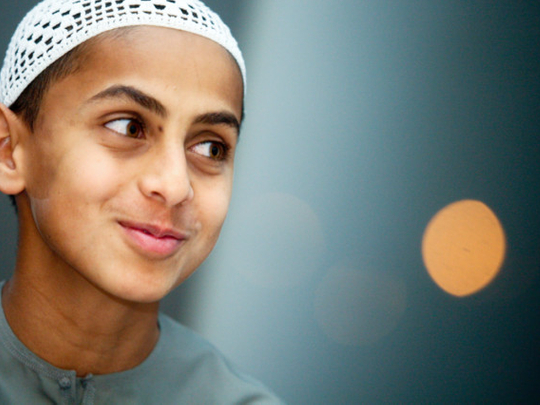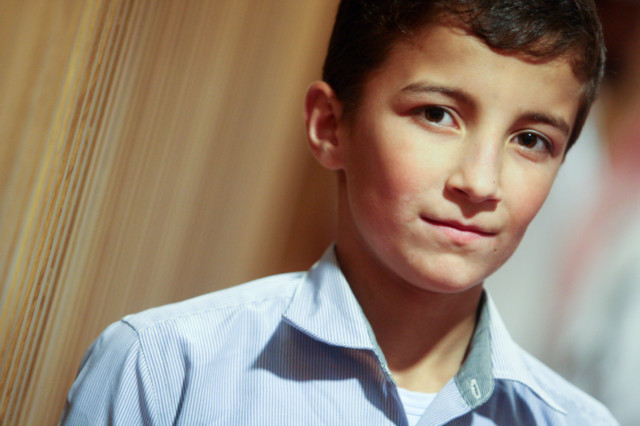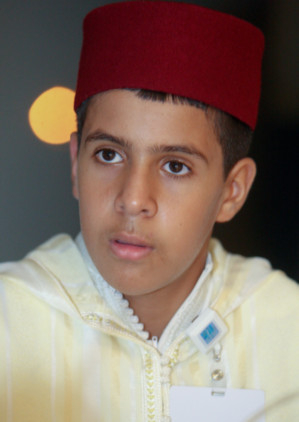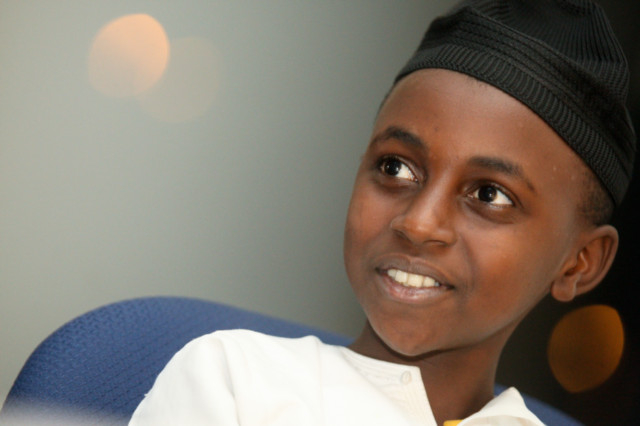
Dubai: Arabic is a hard language to master even for native speakers so one can imagine what it would be like for others, especially children from non-Arabic speaking countries competing for the best recitation of the Quran in Dubai.
Recitation of the Quran is a science which needs to be studied so that every letter can be recited with the correct pronunciation. Due to the vastness of the Arabic language, even a small mistake in the pronunciation of a letter or word can alter the meaning of an entire verse. So it has to be read with Tajweed, which linguistically means ‘proficiency’ or ‘doing something well’. When applied to the Quran, it means giving every letter its rights and dues of characteristics and observing the rules that apply to those letters in different situations.
Yet the little participants competing for top honours showed no nerves or awkwardness as they livened up the stage at the ongoing 17th Dubai International Holy Quran Award (DIHQA) at the Dubai Chamber of Commerce and Industry.
One after another they took to the stage and gave mesmerising performances before a six-judge panel that included Shaikh Ebrahim Al Akhdar Ali Al Qayem from Saudi Arabia, Dr. Shaikh Amer Lorabi from Algeria, Shaikh Abdul Rafe’e Radwan Ali Al Sharqawi from Egypt, Shaikh Mohammad Radi from Thailand, Dr Shaikh Moustafa Atilla from Turkey, and Shaikh Ali Hassan Abd Allah from the UAE.
With the contest entering its final leg, only a handful are now vying for the Dh250,000 prize. When the event began on July 11 there were around 90 participants.
Among those in the fray is Zejani Mohammad from Rwanda. At 11 he is the youngest participant. “I took a break from school so I could focus on the Quran. It took me around one year to memorise it by heart,” said Mohammad, who wants to become a doctor when he grows up.
Another contestant, Luqman Abdel, 12, from Tajikistan, who also wants to become a doctor, said he started memorising the Quran when he was six. “Initially, I would do one page, then two, and so it went on. Arabic is not my first language so it was a bit of a struggle initially,” he said.
Before this event he had participated in three Quran recitation contests in Tajikistan. He got lucky in the third one. “I competed at an Islamic centre and came out a winner, and here I am,” said Luqman, whose brother and father can also recite the Quran flawlessly.
Zimbabwean Yousuf Esmail started memorising the Quran when he was ten. “I don’t understand the language, but my father told me not to worry about it. He says a time will come when I will begin to understand it as well,” said the 12-year-old, who got an opportunity to participate in the event after winning a similar contest in his home country.
Moroccan Anan Mohammad, 14, whose first language is French, reckons he has a slight edge over other participants because he also understands Arabic.
“I started learning Arabic when I was four years old,” said Anan, who has taken part in several reciting competitions in Morocco.
Over the years, DIHQA has brought together experts and students of the Quran on one platform.
Starting next year the competition will be held at a new Dh60 million building in Al Mamzar.
This year’s awards draws to a close on July 29.














